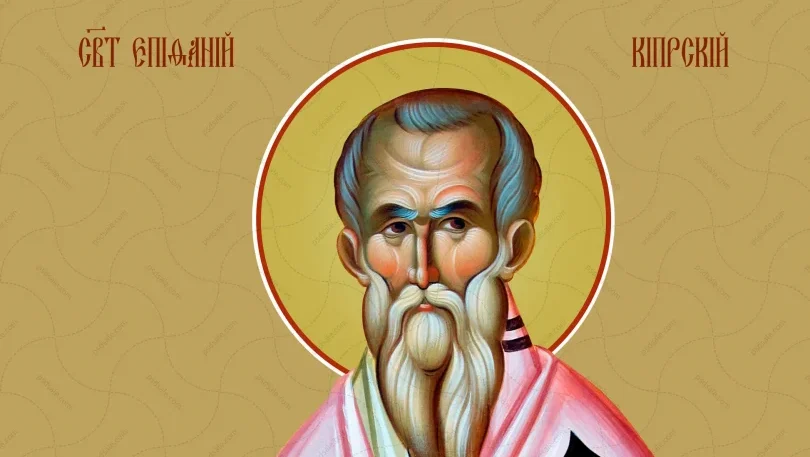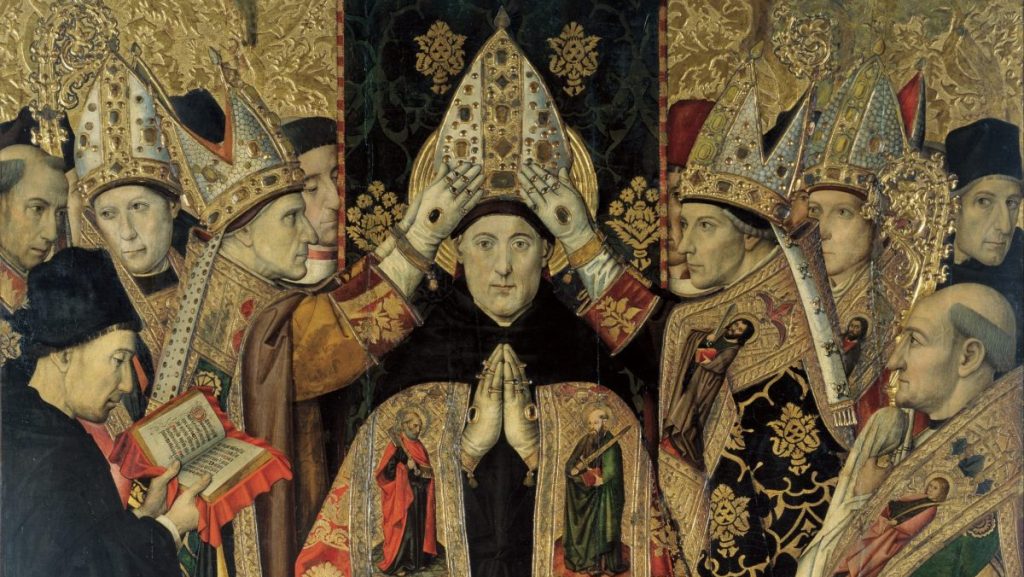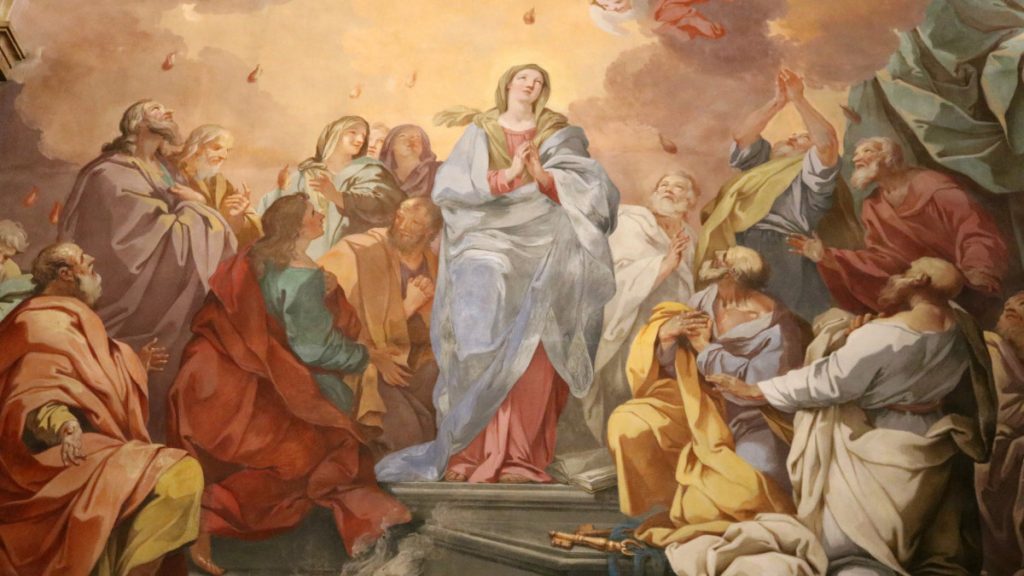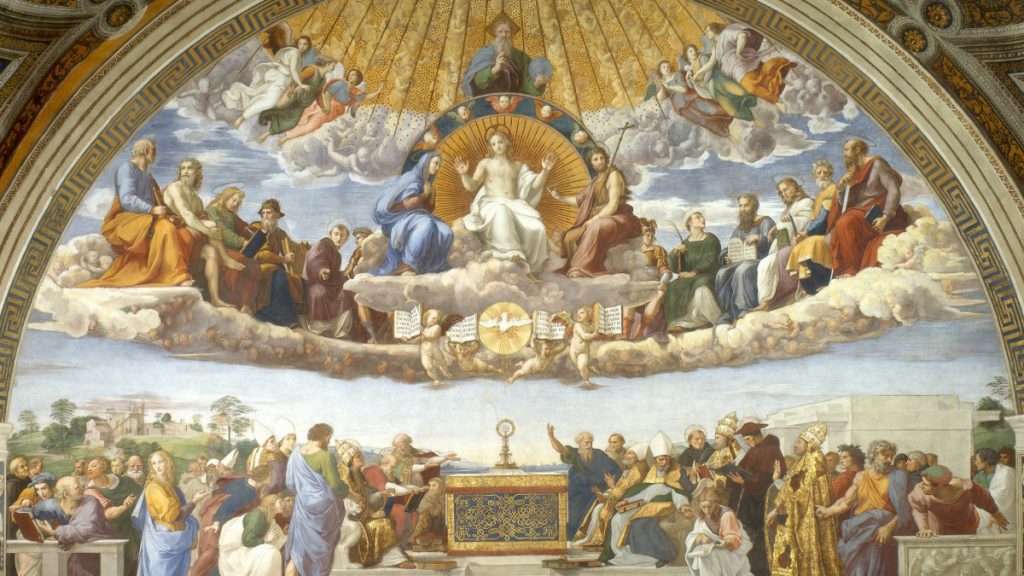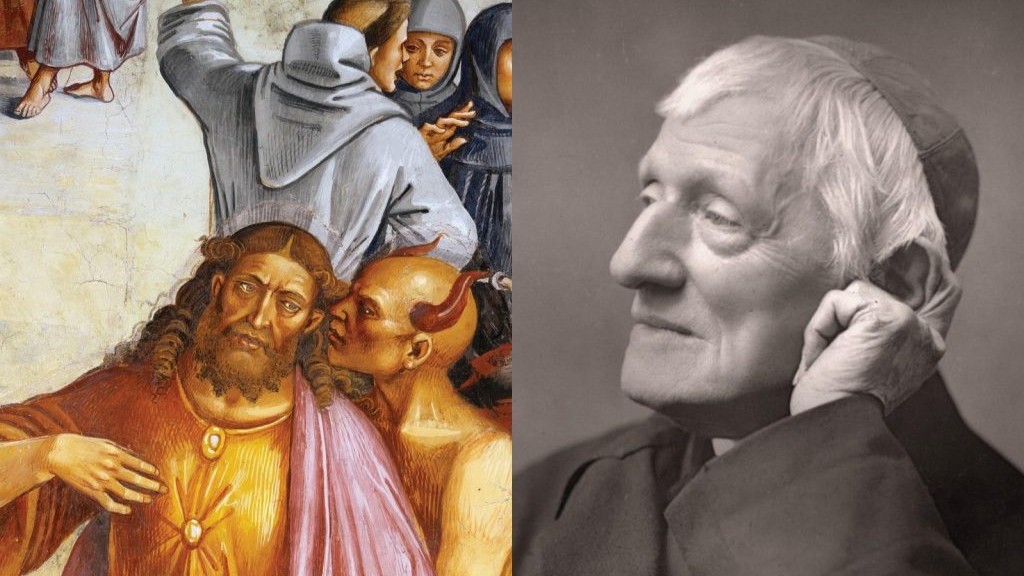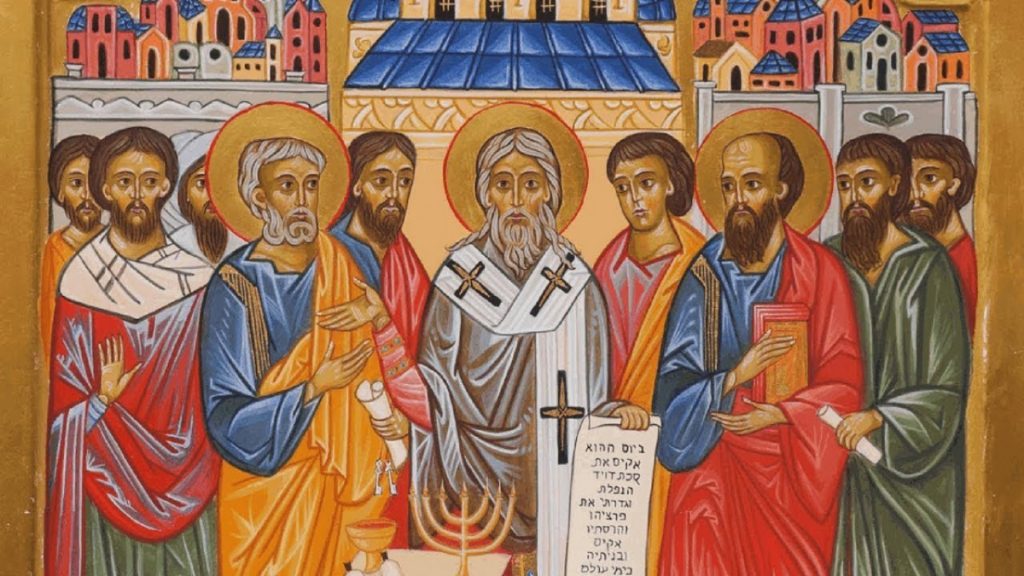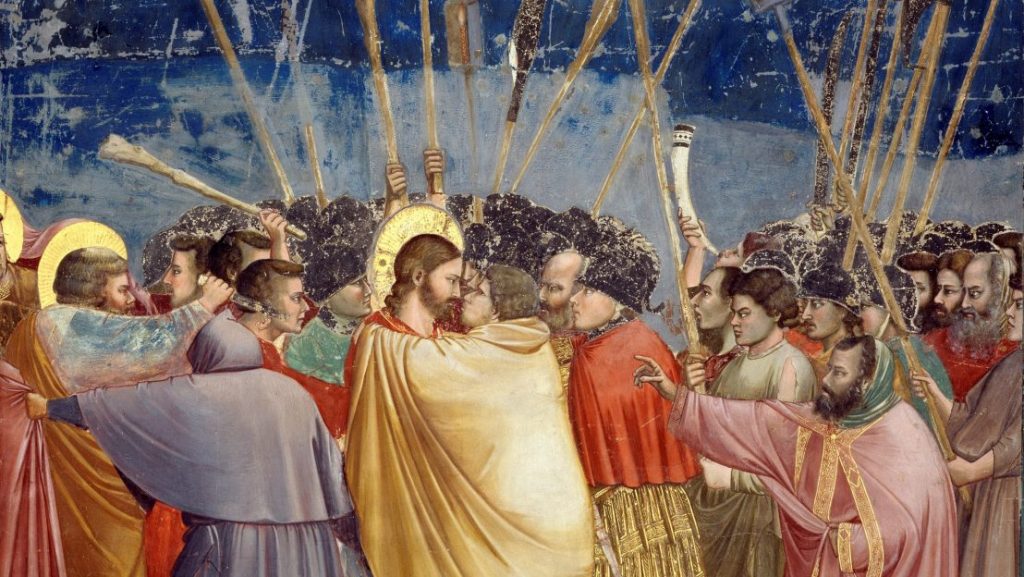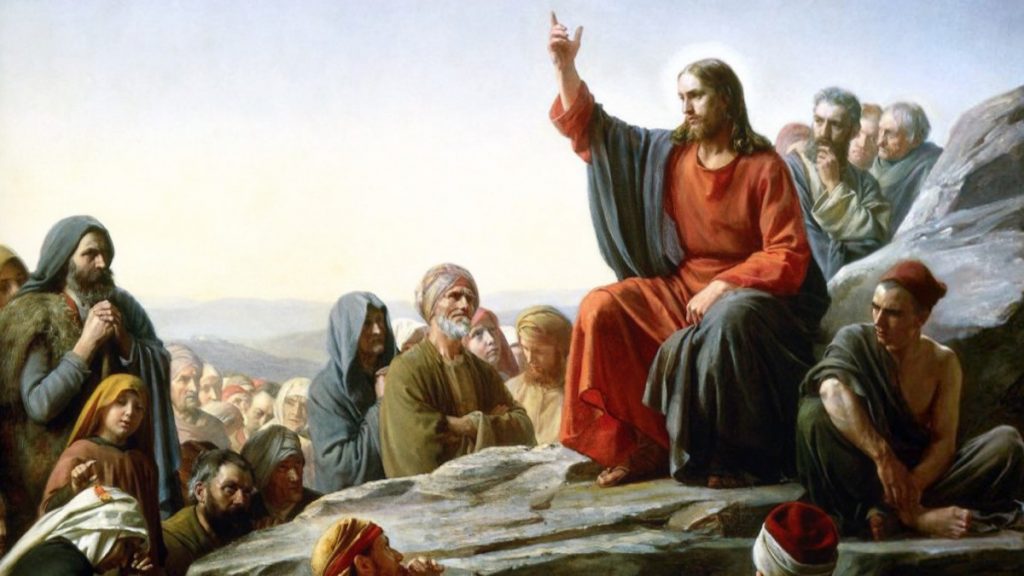(Updated July 12, 2025)
This Quote Archive collects pertinent quotes from the Church Father, St. Epiphanius of Cyprus/Salamis.
Next to each quote are the topic-based Quote Archives in which they are included.
This Quote Archive is being continuously updated as research continues.
Books
St. Epiphanius of Salamis, Ancoratus (374)
- The Papacy and the Invincibility of the Church | Ch. 9, 11, 35
(Ch. 9)1
Because of the temple of God, they also will be called holy men, those who established in themselves the Holy Spirit of God, as the chief of the Apostles [Peter] bears witness, the one who was deemed worthy to be blessed by the Lord, because the Father revealed to him. Therefore, the Father reveals the true Son to him [Peter], and he is blessed; and again the same one [the Father] reveals his Holy Spirit. It was necessary for the first of the Apostles, the solid rock, “upon whom the church of God would be built, and the gates of Hades will not overcome it” (Matt. 16:18), [to declare this?]. The gates of Hades are the heresies and the heresiarchs. For in every way the faith was 75 | 76 made firm in him, in the one who received the keys of heaven, in the one who looses upon the earth and binds in heaven. For in this man are found all the subtleties being asked of the faith.
This man is the one who denied three times and cursed three times before the rooster crowed [Matt. 26:34, 69-74; Mark 14:30, 66-71; Luke 22:54-61]. For indicating the abundance of his love toward his master, affirming confidently he was saying: “even if all deny you, I will not deny” (Matt. 26:33; Mark 14:29), saying so much in reference to his [Christ’s] humanity. This is the one who wept at the sound of the rooster [Matt. 26:75; Mark 14:72; Luke 22:62], in order that he might truly confess that the arrest of the Son of God was not in appearance, but true, in order that he [Peter] might say that he was a true man in weeping at his arrest, having been handed over by the Pharisees.
This is [the] one who came to Galilee to fish, the one who was a partner of the one reclining upon his breast (for he [John], learning from the Son and receiving from the Son, was revealing the power of knowledge, and he was aided by the Father, laying the foundation of the certainty of the faith). He [Peter] is the one who, unclothed in the boat on [Lake] Tiberias [John 21:7], back after being called, was fishing (and the disciple, whom Jesus loved, [was with him?]). After the statement that the Savior made: “Children, you do not have anything to eat, do you?” (John 21:5) and, “Cast on the right side of the ship and you will find [fish]” (John 21:6), and after the astonishing statement happened, John, whom Jesus loved, said to Peter: “It is the Lord” (John 21:7), man according to the flesh, born from Mary in truth not in appearance, being God [according to] Spirit, coming form the Father from the heavens.
[This man] is the one who heard from him [Christ], “Peter, tend my sheep” (John 21:15), the one who has been entrusted with the flock, the one guiding well in the power of his own master, the one confessing concerning the flesh, the one truthfully announcing the things of the Father 76 | 77 concerning the Son, the one indicating the Spirit and his worthiness to divinity, the one giving the right hand of fellowship to Paul and Barnabas with James and John, in order that “through three witnesses all that is said may stand” (Deut. 19:15; Matt. 18:20).
(Ch. 11)2
How do they dare to say that the Spirit is alien from God, those who especially are possessed by madness and not by truth, those who do not learn the true expression of the trustworthy and holy Paul the Apostle, to whom the chief of the Apostles, Peter, the one worthy to hold the keys of the kingdom, gave his right hand…
(Ch. 34)3
For the chief of the apostles, Peter, interprets for you the purpose of his death, saying, “put to death in flesh, but made alive in spirit” (1 Pet. 3:18).
St. Epiphanius of Salamis, The Panarion of Epiphanius of Salamis (c. 375)
- Apostolic Tradition | Book 2, Ch. 6, §§4-7
- The Papacy and the Invincibility of the Church | Book 1, Ch. 27, §6
- The Sacrament of Marriage, Divorce, and Contraception | Book 1, Ch. 26, §5
But although they [Egyptian heretics] have sex with each other they renounce procreation. It is for enjoyment, not procreation, that they eagerly pursue seduction, since the devil is mocking people like these, and making fun of the creature fashioned by God. They come to climax [orgasm] but absorb the seeds of their dirt, not by implanting them for procreation, but by eating the dirty stuff themselves.
For the bishops at Rome were, first, Peter and Paul, the apostles themselves and also bishops–then Linus, then Cletus, then Clement, a contemporary of Peter and Paul whom Paul mentions in the Epistle to the Romans. And no one need wonder why others before him succeeded the apostles in the episcopate, even though he was contemporary with Peter and Paul–for he too is the apostles’ contemporary… 113 | 114
In any case, the succession of the bishops at Rome runs in this order: Peter and Paul, Linus and Cletus, Clement, Evaristus, Alexander, Xystus, Telesphorus, Hyginus, Pius, and Anicetus, whom I mentioned above, on the list. And no one need be surprised at my listing each of the items so exactly; precise information is always given in this way.
However, none of the sacred words need an allegorical interpretation of their meaning; they need examination, and the perception to understand each proposition’s force. But tradition must be used too, for not everything is available from the sacred scripture. Thus the holy apostles handed some things down in scriptures but some in tradition, as St. Paul says, “As I delivered the traditions to you” (1 Cor. 11:2), and elsewhere, “So I teach, and so I have delivered the tradition in the churches” (1 Cor. 11:2), and “If you keep the tradition in memory, unless ye have believed in vain” (1 Cor. 15:2). God’s holy apostles, then, gave God’s holy church the tradition that it is sinful to change one’s mind and marry after vowing virginity. And yet the apostle wrote, “If the virgin marry she hath not sinned” (1 Cor. 7:36). How can the two statements agree? By that virgin he does not mean the one who had made a vow to God, but the one on whom virginity has been forced by the scarcity, at that period, of men who believe in Christ.
Footnotes
- St. Epiphanius of Salamis, Young Richard Kim, trans., The Fathers of the Church, Vol. 128: St. Epiphanius of Cyrus, Ancoratus (Washington, DC: The Catholic University of America Press, 2014), 75-77. ↩︎
- St. Epiphanius of Salamis, Young Richard Kim, trans., The Fathers of the Church, Vol. 128: St. Epiphanius of Cyrus, Ancoratus (Washington, DC: The Catholic University of America Press, 2014), 79. ↩︎
- St. Epiphanius of Salamis, Young Richard Kim, trans., The Fathers of the Church, Vol. 128: St. Epiphanius of Cyrus, Ancoratus (Washington, DC: The Catholic University of America Press, 2014), 112. ↩︎
- St. Epiphanius of Salamis, Frank Williams, trans., The Panarion of Epiphanius of Salamis: Book 1 (Sects 1-46), 2nd ed. (Leiden: Brill, 2009), 94. ↩︎
- St. Epiphanius of Salamis, Frank Williams, trans., The Panarion of Epiphanius of Salamis, Book II and II, De Fide (Leiden: Brill, 2013), 121. ↩︎
